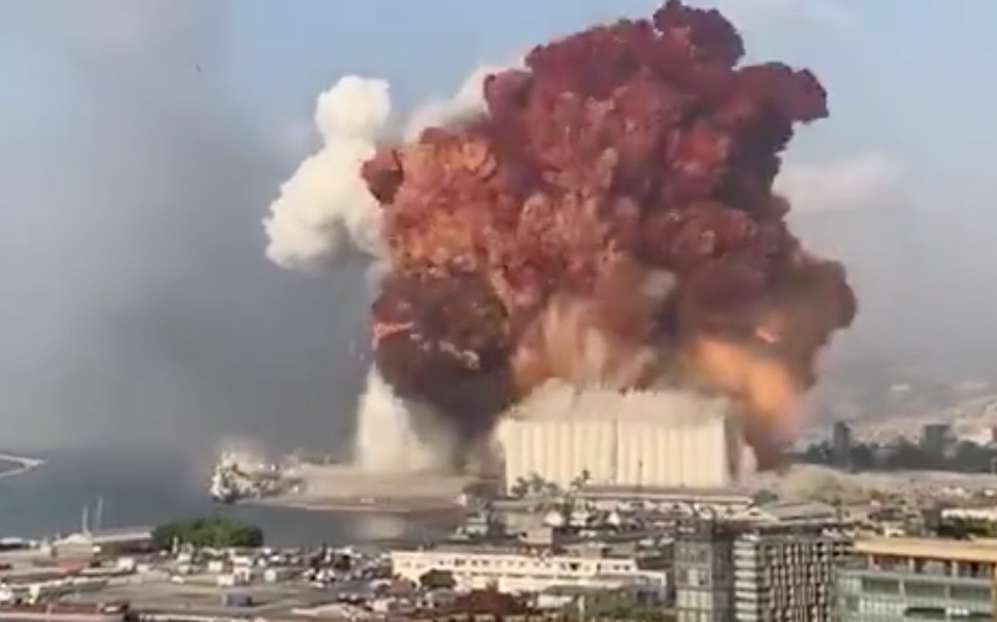Lebanese President Michel Aoun said on Wednesday that losses from the devastating blast that ripped through Beirut on August 4, caused more than $15 billion in damages.
"Primary information states that losses exceed 15 billion dollars, in addition to the port's damage, and the need for reconstruction material to rebuild the infrastructure that was destroyed by the explosions," Aoun said during a phone call with Spain’s King Felipe VI on Wednesday.
The Spanish monarch called Aoun to offer his condolences and express his solidarity with the Lebanese people, according to a press release published on the presidential website.
Aoun told King Felipe that he appreciates any support for Lebanon in this field. The king said that Spain will continue supporting Lebanon by sending more aids to help the Lebanese population during these tough times.
Governor of Beirut Marwan Abboud earlier stated that from $12 bln to $15 bln will be needed to restore the city.
On Wednesday, the Internal Security Forces Directorate of Lebanon reported that nearly 4,000 buildings were partially or completely destroyed by the blast.
[caption id="attachment_142138" align="aligncenter" width="997"] Beirut explosion[/caption]
Beirut explosion[/caption]
Two huge explosions rocked Port of Beirut, shaking buildings all over Lebanon's capital, killing at least 171 people and wounding over 6,000, as well as leaving dozens listed missing.
According to Lebanon’s Interior Ministry, a fire was started by welding work and caused the detonation of more than 2,750 tonnes of ammonium nitrate, which had been stored in the port for six years after being seized by the customs service.
On August 5, the Lebanese government declared a state of emergency for two weeks in Beirut in the wake of the devastating explosions rocked the capital.
During Lebanon’s cabinet meeting, an order was issued for putting an unspecified number of Beirut port officials under house arrest pending an investigation into how 2750 tons of ammonium nitrate came to be stored at the port for years.
The move comes amid speculation that negligence was to blame for the explosion.
On his part, Diab said that what happened “a great catastrophe that struck Lebanon,” adding that a quick process of repairing damages and providing urgent aid to help people has been initiated.
The prime minister also called upon “All political forces (Lebanese) to stop the confrontations and focus on addressing the repercussions of the explosion.”












